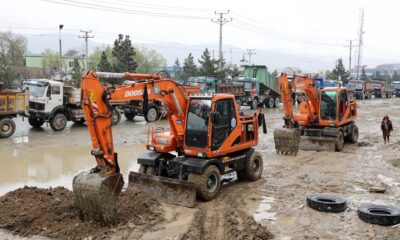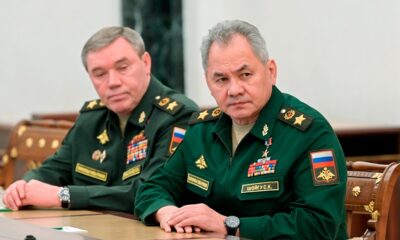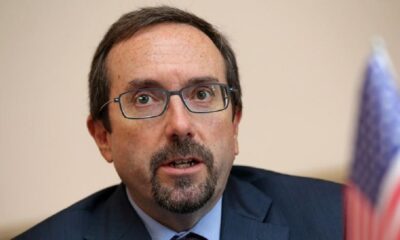Business
Ministry of energy pushes ahead with plans to increase power output
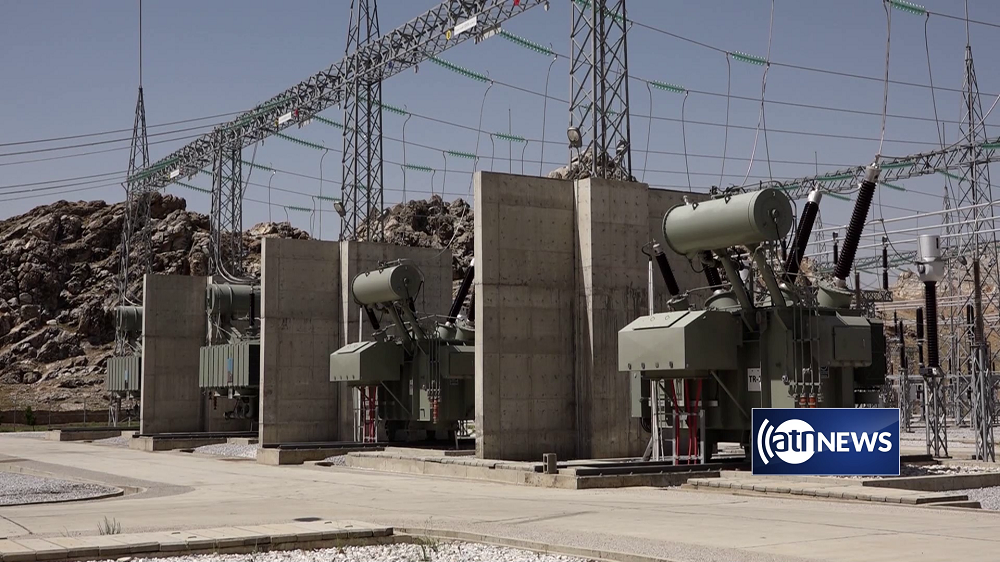
Officials from Afghanistan’s Ministry of Energy and Water have identified 16 electricity-generating projects that once established will increase power output and help make the country less reliant on its neighbors for this critical commodity.
The ministry’s spokesman Mawlavi Akhtar Mohammad Nasrat said of these 16, there are 12 thermal and solar power projects that have been identified and proposals have been shared with domestic and foreign investors in the hope of attracting financial backing.
Nasrat told Ariana News they have spoken to possible investors from Russia, Iran, the US, China and Turkey but as yet no agreements have yet been finalized.
“Companies and donors came here to Afghanistan from Russia, US, China, Iran, and Turkey and said they are interested in investing in this area to increase electricity generation across the country,” he said.
Economists also believe that if investors can be found to support this sector, and more electricity is generated, industry will grow.
One economist, Taj Mohammad Talash, said he thinks the agricultural sector would also grow if more power was generated. He said: “The Islamic Emirate can prioritize energy in three categories, through water, wind, and solar.”
Currently, Afghanistan pays its neighboring countries about $250 million a year for electricity as it generates only about 600 megawatts (MW) from several hydroelectric, fossil fuel and solar plants.
However, an additional 670 MW is imported from neighboring Iran, Uzbekistan, Tajikistan and Turkmenistan.
Power projects ‘prioritized’
In April, the IEA’s Economic Commission, chaired by Deputy Prime Minister Mullah Abdul Ghani Baradar, gave orders for various ministries to prioritize projects to generate electricity.
At the time, the commission said after “extensive discussions on all issues that the private sector is prepared to invest in” it was decided that the generation of electricity should be a priority.
According to the statement, the commission instructed the Ministry of Mines and Petroleum; the Ministry of Trade and Industry; the Chamber of Industry and Mines; as well as the Chamber of Commerce and Investment, under the leadership of the Ministry of Energy and Water, to also generate electricity from coal.
A shortage of power has plagued Afghanistan for decades despite it having ample hydropower, coal and fossil fuel resources.
Over the past few years however, one successful private partnership has emerged – between the Afghan government and Bayat Power, Afghanistan’s largest, Afghan-owned and operated power production company which has the region’s most technologically advanced gas fired electric power plant.
Launched in 2019, this commercial operation provides reliable and affordable electric power to thousands of people in Afghanistan.
Located in Sherberghan, in the north of the country, the epicenter of the nation’s gas-rich region, Bayat Power has steadfastly aimed to provide essential power for Afghanistan’s economic growth.
Powered by a Siemens SGT-A45 ‘Fast Power’ turbine, the world’s most advanced mobile gas to energy power solution, phase one of Bayat Power-1’s operations generates up to 41 megawatts of power for Afghan homes and businesses.
To date, Bayat Power has delivered over 600 million kilowatts of domestic power to the Afghan grid. However, Bayat Power hopes to eventually roll out three phases in total, that will generate more than 200 megawatts of electricity – enough to serve millions of Afghan residential and commercial clients.
Business
Azizi calls on Malaysian investors to invest in Afghanistan
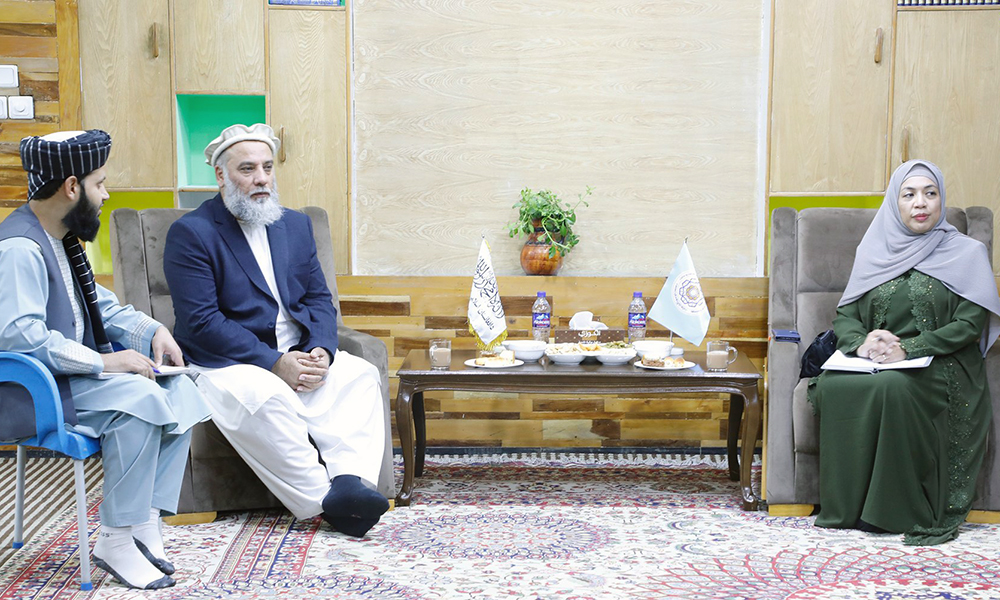
Nooruddin Azizi, Acting Minister of Commerce and Industry, met with representatives from the ministries of foreign affairs, defense and interior of Malaysia, along with other senior officials, on Wednesday and called on Malaysians to invest in Afghanistan.
The visiting delegation is being led by senior diplomat Dr. Shazelina Zainul Abidin.
According to the IEA’s foreign ministry, the two sides discussed bilateral trade, holding a business communication conference to strengthen trade relations between the two countries, the trade balance between Afghanistan and Malaysia, and creating a market for Afghan products, including carpets, cotton, and minerals.
According to the ministry, at the end of the meeting, the Acting Minister emphasized the increase of investment from regional countries in Afghanistan and called on Malaysian investors to also invest in Afghanistan.
Business
Afghanistan starts exporting via railway to Turkey

The Ministry of Interior says that Afghanistan has started exporting goods to Turkey via the Herat-Khaf railway line.
In a post on X, the ministry said: “Afghanistan’s exports to Turkey started in a calm atmosphere through the Herat-Khaf railway line.”
The ministry added that one train will run daily for a month and then two trains will run daily.
According to the ministry, the security of Khaf-Herat railway line is provided by the guards of the National Public Protection Agency.
Khaf-Herat railway project not only connects Iran and Afghanistan by rail, but also completes a 2,000-kilometer route along the east-west rail corridor from China, through Uzbekistan, to Afghanistan, to Iran, and on to Turkey and Europe.
As a landlocked country, this railway network will provide a safe route to connect with Europe via Iran’s railway network and Iran’s southern ports.
This railway line is strategic for trade between Iran and Afghanistan and will allow six million tons of goods to be sent between the two countries.
Business
Afghanistan, Kazakhstan to hold joint expo in Kabul
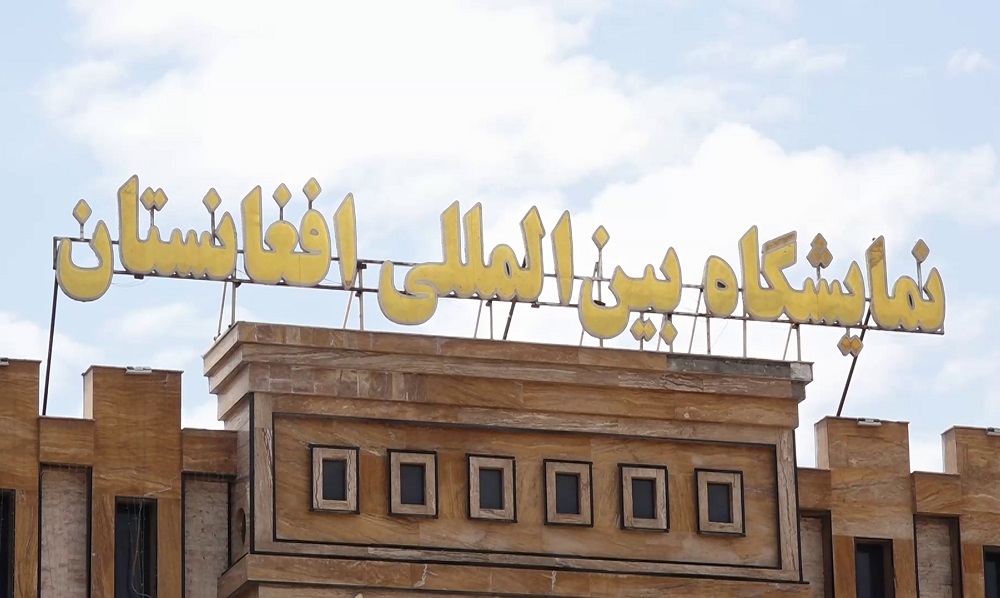
A joint expo between Afghanistan and Kazakhstan will be held in Kabul in the next four days, officials said on Sunday.
Officials of the Ministry of Industry and Commerce said that the two-day expo will be held for the purpose of expanding and strengthening trade relations between the two countries.
“This expo will be held as a follow-up of the Kazakh-Afghan international expo, which was held in the city of Astana, Kazakhstan, with the participation of a large delegation of the government and the private sector of the Islamic Emirate of Afghanistan,” Abdulsalam Javad Akhundzadeh, the spokesman of the Ministry of Industry and Commerce, said.
“At this expo, domestic products from different sectors of Afghanistan and the Republic of Kazakhstan will be put on display for two days.”
According to officials, 40 large Kazakh companies, and 40 large Afghan companies will exhibit their products.
Mohammad Saber Latifi, head of the Afghanistan International Expo Center, said that fruits, minerals and commercial services will be displayed at the expo.
During the expo, various memorandums of understanding for the trade of goods are also expected to be signed by companies.
-

 Latest News4 days ago
Latest News4 days agoRashid Khan named AWCC’s brand ambassador
-

 Regional5 days ago
Regional5 days agoIranian president lands in Pakistan for three-day visit to mend ties
-

 World4 days ago
World4 days agoMalaysian navy helicopters collide in mid-air, 10 killed
-

 Sport4 days ago
Sport4 days agoJaiswal ton powers Rajasthan to big IPL win
-

 World3 days ago
World3 days agoNorth Korea officials visit Iran in a rare public trip
-

 Sport4 days ago
Sport4 days agoMawj Sahil player scores stunning halfway line goal in 1-0 win over Jawanan Wahedi
-

 Latest News4 days ago
Latest News4 days agoAt least 1,500 families affected by recent floods: IRW
-

 Sport3 days ago
Sport3 days ago‘Serious talent’ Fraser-McGurk bonds with Warner to light up IPL


